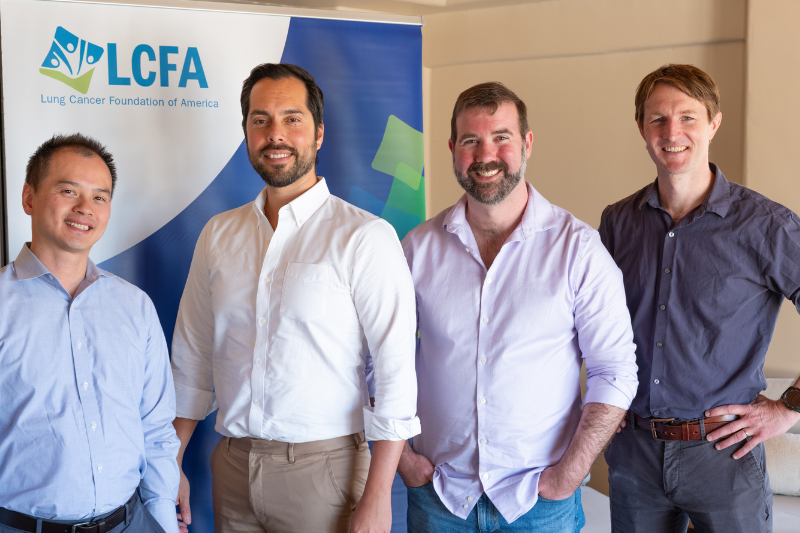About Our Grantmaking
LCFA grant awards help accelerate lung cancer research from bench to bedside with the goal of helping patients as soon as possible.
Why we award grants
We aim to attract the best and the brightest to lung cancer research. An LCFA grant award is typically $200,000 awarded to an early career researcher for work over two years. These significant awards allow researchers to set up and staff a lab and amass the crucial data needed to attract add-on funding for the project from major funding sources, such as the National Institutes of Health (NIH).
LCFA’s grant criteria is laser-pointed at research projects focused on improving the care and treatment of individuals with lung cancer. By funding their early research years, LCFA provides them the opportunity to stay focused on lung cancer throughout their careers.
Investing in Researchers
LCFA Early Career Researcher Grant Program
22 grants worth $4.4 Million
$43M in follow-on funding
10X Return On Investment in Early Career Researcher Grants
LCFA Young Investigator Grants
How your donation to LCFA funds lung cancer research
When you donate to LCFA, your donation is combined with donations from other donors and from our strategic partners. We use the combined funds to award significant lung cancer grants to researchers who present the “best in science” project.
Follow our Early Career Researchers
View all Researchers-
Julie Wu, MD
Staff Physician, Medical Oncology
Precision oncology integrating evidence-based models into clinical practice to personalize treatment approaches

-
Jonathan Villena-Vargas, MD
Thoracic Surgeon
Characterizing T cell PD-1 response in the tumor-draining lymph nodes of early-stage NSCLC patients

-


